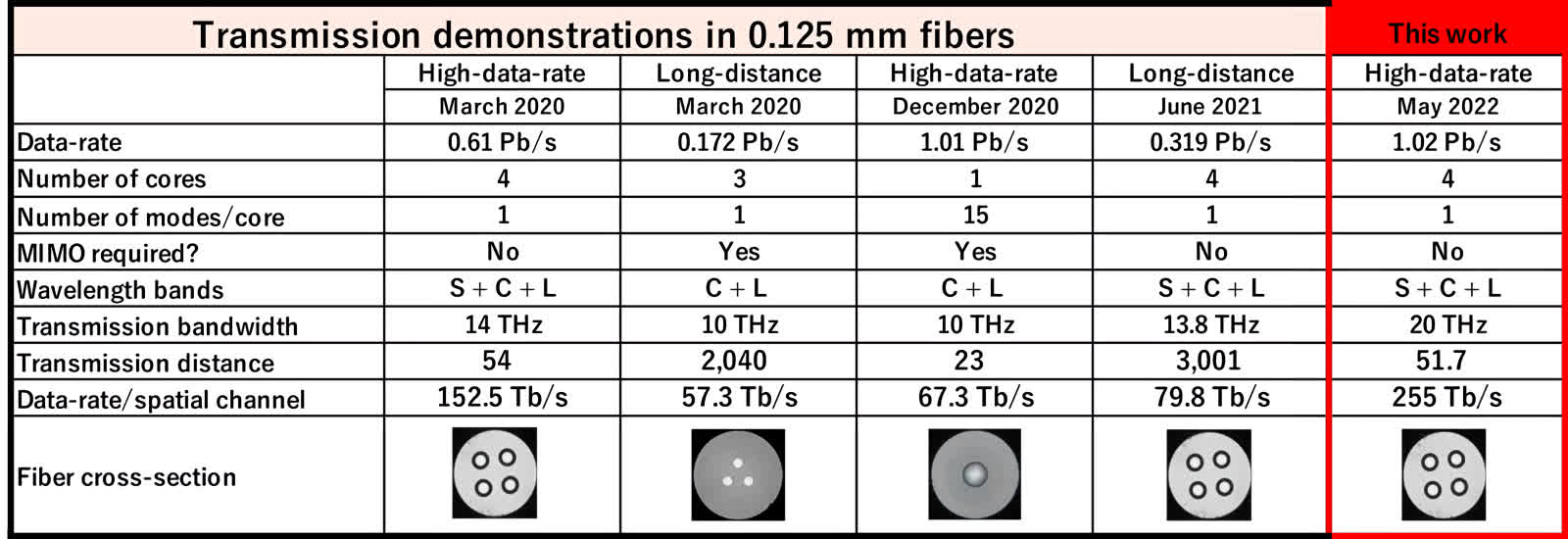Why it matters: Data transfer speeds over fiber optic cables seem relatively finite. After all, even light has a speed limit. There's only so much data that can be crammed into a light package and zipped across a line. However, this has not stopped scientists from looking for innovative ways to move more and more data.

On Monday, researchers at Japan's National Institute of Information and Communications Technology (NICT) broke another data-rate record, with an officially recorded speed of 1.02 petabits per second. This rate is 10 Tb/s faster than its previous high-data-rate test in December 2020. And it's more than three times faster than the long-distance test NICT performed last June.
To put that in perspective, the researchers pointed out that 1.02 Pb/s is equivalent to sending 127,500GB down the pipe every second or enough to facilitate more than "10 million channels of 8K broadcasting per second."

Whatsmore, the researchers say that the technique they used is compatible with existing fiber optic infrastructure, although it is modified for higher speeds and parallel transmission. The custom cable has four fiber optic cores rather than the single core of current lines. Despite this difference, data is only transmitted in one mode per core, meaning existing technology could be retrofitted to receive and read it.
Speeds are further enhanced using "wavelength division multiplexing" (WDM). Using WDM increases bandwidth to 20 THz. That pipe is divided into 801 wavelength channels over standard C- and L-bands and the experimental S-band. The team also used new optical amplification and signal modulation technologies to stabilize and amplify the signal.
Although the NICT didn't mention further tests, judging by its testing frequency, it's probably safe to expect another long-distance test in about six months. It's worth noting that the team's 319 Tb/s long-distance speed from last year used the same four-core technology as this one but at a bandwidth of only 13.8 THz. Perhaps the team will crank the bandwidth up to 20 THz for the next one and break yet another record.
https://www.techspot.com/news/94809-japan-researchers-break-another-data-speed-102-petabits.html